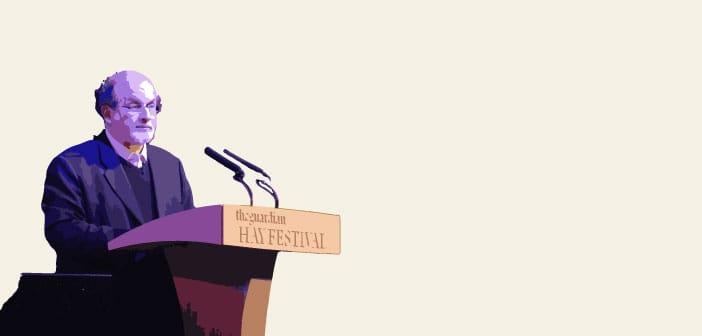Author Salman Rushdie spent years hiding because Iran’s religious leaders wanted him dead for a book they didn’t like.
Rushdie remained a fierce defender of free speech. In 2015, when gunmen killed 12 at the French satirical weekly Charlie Hebdo, he spoke out.
WBUR is a nonprofit news organization. Our coverage relies on your financial support. If you value articles like the one you’re reading right now, give today.
“The moment you limit free speech it’s not free speech. The point about it is that it’s free! You can dislike Charlie Hebdo,” Rushdie said. “Not all their drawings are funny, but the fact that you dislike them has got nothing to do with their right to speak.”
Last week, Rushdie was brutally attacked. He’s in critical condition. And our guest says, so is the concept of free speech.
“We’re living through a free speech recession. Free speech has been in retreat around the globe,” Jacob Mchangama, lawyer and human rights advocate, said.
“Even open democracies are adopting standards to counter undesirable material on social media or hate speech or disinformation.”
Today, On Point: The history of the price of free speech.
Guests
Jacob Mchangama, lawyer and human rights advocate. Executive director of the Copenhagen-based think tank Justitia. Author of Free Speech: A History From Socrates to Social Media. Host of the podcast Clear and Present Danger: A History of Free Speech. (@JMchangama)





